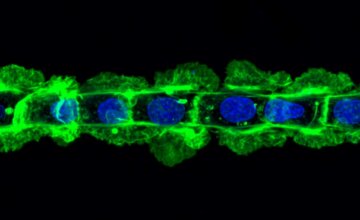5 Energy Transition Projects Led by UMONS to Receive €2 Million in Funding
UMONS features prominently among the 2021 beneficiary universities with no less than five projects out of the 14 selected by the Council of Ministers.
Through the Fonds de transition énergétique (energy transition fund), the Belgian government supports research, development and innovation projects that contribute to the energy “switch” and enable the country to move towards 100% renewable energy.
This fund, which has existed since 2017, and is fed by the nuclear tax paid by Engie Electrabel, distributes €25 million each year.
UMONS features prominently among the 2021 beneficiary universities with no less than five projects out of the 14 selected by the Council of Ministers.
These five projects will receive a total of €1,881,421 in funding.
These are:
- DISCRETE (for “Data driven optimization models for secure real-time operation of renewable dominated power systems”)is a collaborative project with KULeuven that reviews the operational management methods of electricity transmission networks using model-free approaches (e.g. reinforcement learning).
- ALEXANDER (for “Accelerating low voltage flexibility participation in a grid safe manner”) is also a multi-partner project, coordinated by VITO, which assesses the achievable flexibility of households in balancing electricity networks.
- DRIVER (for “Développement d’un modèle de maRché, Infrastructurel et régulatoire, du CO2 comme Vecteur pour le stockage d’Energie Renouvelable”) is coordinated by UMONS and carried out in partnership with ULiège and UCLouvain. The objective is to develop a CO2 market model to produce defossilised synthetic fuels in order to achieve energy independence in the long term, integrating economic, infrastructural and regulatory aspects.
- T-REX (for “On the Transition to more Renewable Energy in power-to-X applications”) T-REX is conducted in partnership with VITO and focuses on the research and development of CO2 conversion technologies dedicated to viable value chains for carbon capture and utilisation (CCU) in Belgium and abroad. This project is carried out in the context of existing and new roadmaps for the transition to renewable energy on a regional and international level.
- BE-HyFE (for “Belgian Hydrogen Fundamental Expertise”)is conducted in partnership with UGent and seeks to create a Belgian pool of academic knowledge and expertise on hydrogen by establishing a broadly trained and networked group of researchers to help Belgian industry find technological and societal solutions, ensure a secure supply and meet environmental objectives.
For more information on this government initiative, visit: https://economie.fgov.be/fr/themes/energie/transition-energetique/fonds-de-transition
For more information on these projects, contact: barbara.marchi@umons.ac.be




